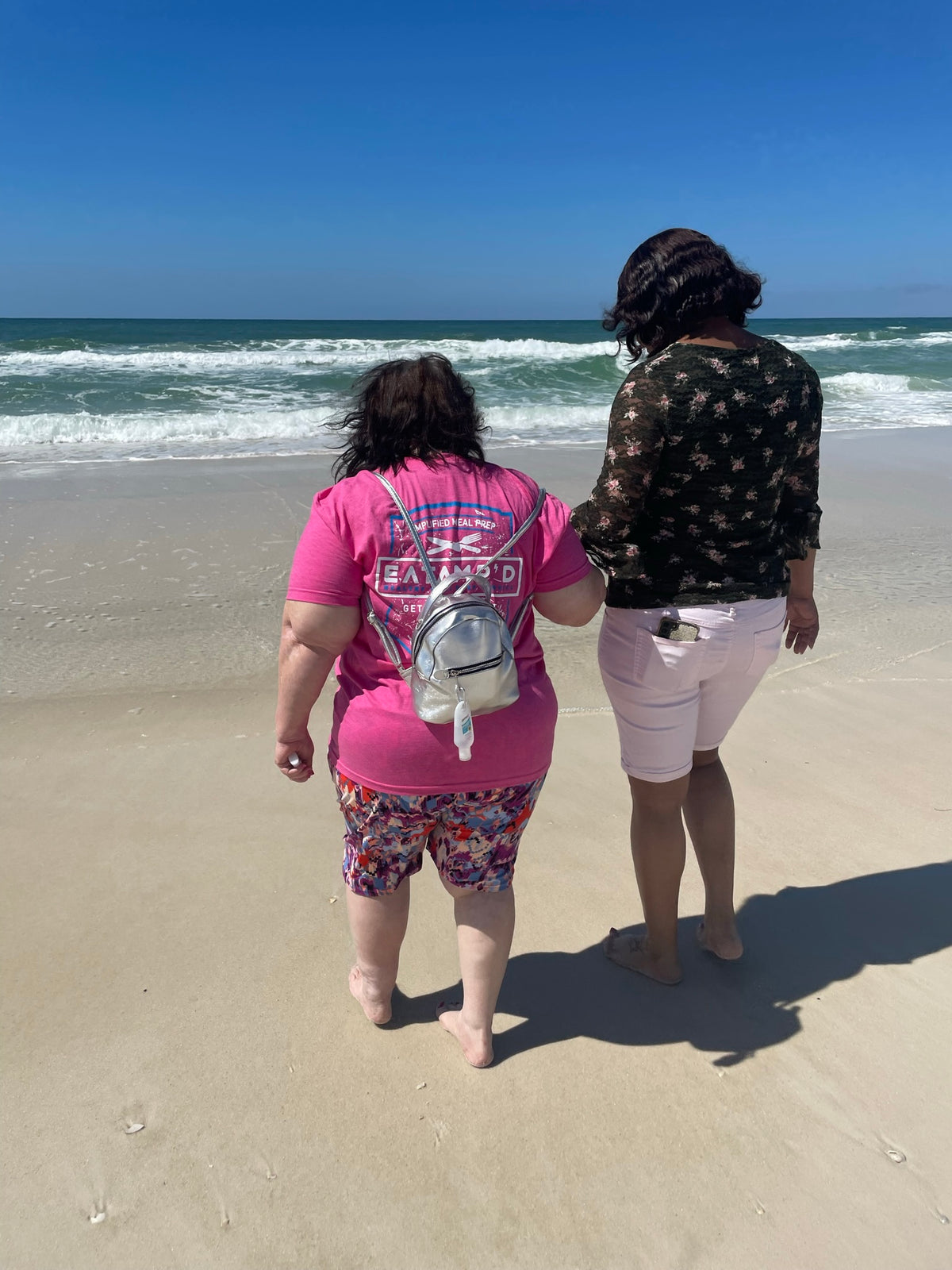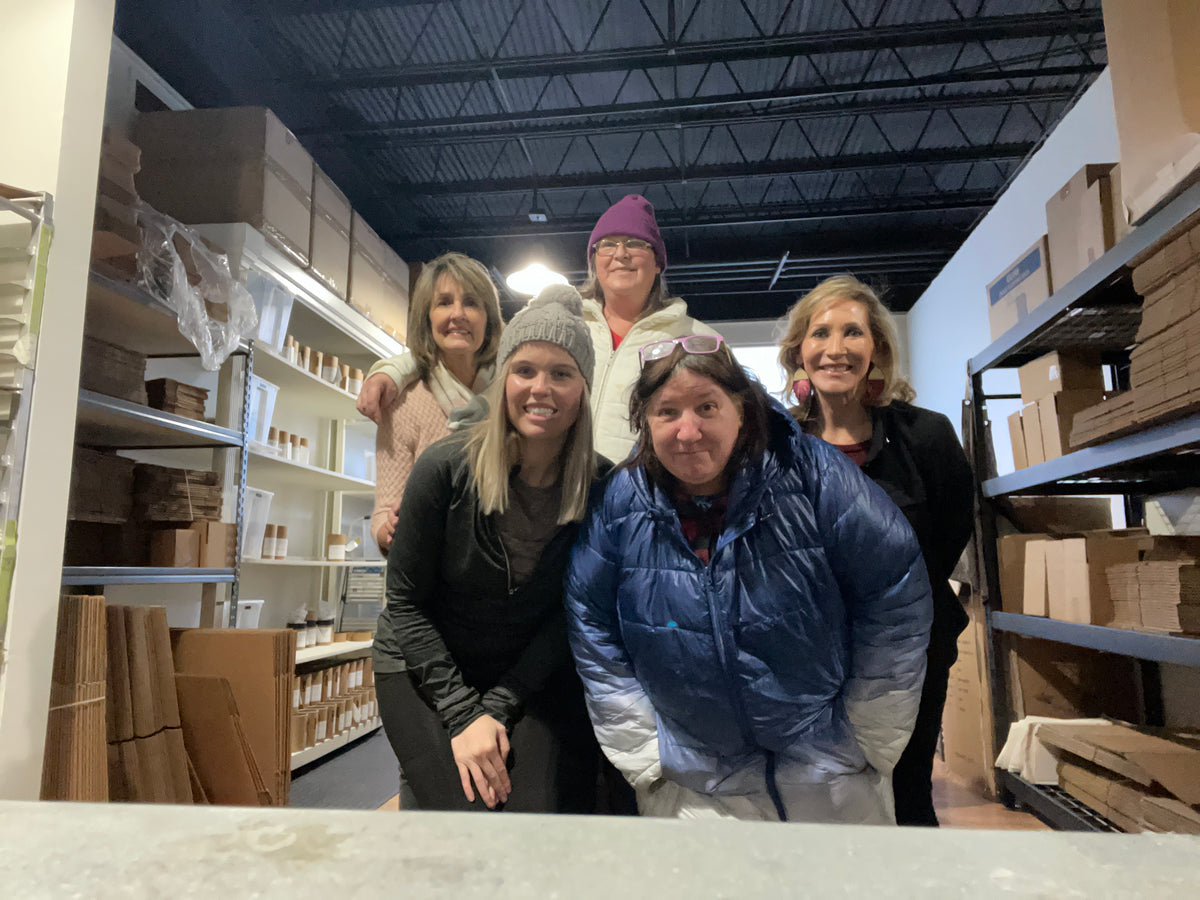How a Pandemic Helps Traffickers Target the Vulnerable - RE+NEW+ALL Candle

Job loss, lockdowns, financial instability, remote schooling...the COVID-19 pandemic has had an enormous impact on lives worldwide. It’s estimated 81% of the global workforce has been affected.
With the economy taking a heavy hit, people avoiding travel, and public spaces like schools, shopping centers, and indoor dining closed or strictly limited, you might think human trafficking would slow down as well.
But in fact, it’s in times of misfortune that the doors to trafficking fly open even wider.
Human Traffickers: Playing on Fears and Putting Lives at Risk
This is because traffickers thrive on desperation. When someone is struggling, they’re even more vulnerable to being manipulated and intimidated in order to survive.
The pressure to pay mounting bills, keep a roof over their head, and put food on the table make any promises of money even more tempting. Traffickers prey on anxiety and need.
And during a pandemic, the risks become even more dangerous. Trafficking victims are put in situations that could easily lead to catching and spreading the virus.
What happens if a trafficking victim gets sick? If they have no funds to pay for doctor’s visits or no access to insurance, they may have no choice but to try and continue working. Or they simply suffer the physical consequences.
As COVID-19 continues to , victims are literally putting their life on the line. If they have families, their children risk losing a parent.
And keep in mind that trafficking takes on many faces. It’s much more than society’s simplistic perception of a pimp exploiting a sex worker.
It looks like a companion or spouse forcing their partner into using his or her body to bring in extra funds.
It looks like a landlord pressuring a tenant for favors in exchange for rent.
It looks like a boss demanding sexual services to maintain an income.
These are just a few of the paths leading the vulnerable into harm’s way.
Online Predators Targeting Children at Home
And trafficking doesn’t just take place face to face. With everyone plugged in online, both for business and pleasure, traffickers now have the worldwide web at their disposal.
The ease and convenience of the internet has allowed the online market for sexual exploitation to grow. Many of those faces on camera are not performing of their own free will.

With COVID-19, social distancing, working from home, and remote schooling have become the norm. We’ve all had to make big adjustments. As a result, a lot more people are tuning in and connecting through web-based technology.
This means children are even more at risk to online predators. The popularity of social media combined with a desire for attention and approval makes the internet an ideal hunting ground for anyone looking to groom young victims through chat rooms or private messages.
The danger is especially high for lower-income children who no longer have access to the support systems they once had by being at school.
And exploitation doesn’t occur just through conversation with strangers.
Unless an account is private, any pictures made public or shared in one-on-one chats could be added to a website that traffics in sexual imagery.
If you’re a parent, it’s critical you monitor your children’s internet use and know what they’re being exposed to as well as who they may be talking to. Adding parental controls to computers to limit where they can engage online is a good place to start.
Having open conversations with your child about what appropriate online communication is and isn’t will make a big difference too. It creates a safe space for your kids to talk to you about what they’re seeing or experiencing.
Managing life during a pandemic has certainly heaped another challenge to our already full plates, particularly if you’re a parent. And while paying attention to your child’s online connections may not make you a popular parent with your kid, keeping them safe will always be worth it.
How Can You Help Fight Human Trafficking Right Now?
Though the situation sounds dire, the good news is there are plenty of ways you can help!
As always, awareness is key. Not just awareness of the many forms trafficking takes and how to recognize it, but of the many nonprofits offering resources, guidance, and safety to survivors.
These nonprofits have been hurt by the pandemic as well with donations drying up. Yet while donations are down, the calls for help continue.
Places providing services to victims of trafficking need more support than ever. And there are many ways to give.
You can make your own direct donation or advocate for these organizations by recommending them for corporate matching programs. Connecting these programs to other fundraising methods is a wonderful way to put your personal network to great use.
Naturally, you can also donate your time and talents. Volunteering is an incredible opportunity to make a difference and learn more about trafficking.
And keep the National Trafficking Hotline number handy should you see someone being exploited or know someone looking for help. The number is 1-888-373-7888 or text “BeFree” or “Help” to 233733.
It’s been a trying time for everyone, and it’s difficult to know when this pandemic will officially end. But we’re always stronger as a community when we look out for and lift one another up.
Working together, we’ll one day live in a world where everyone can be safe, be home, and shine their light for all to see.



